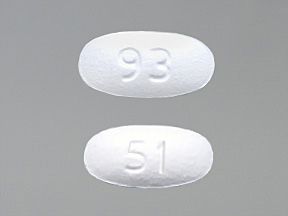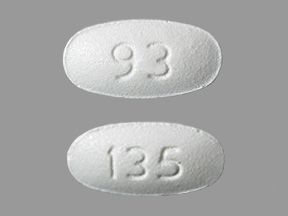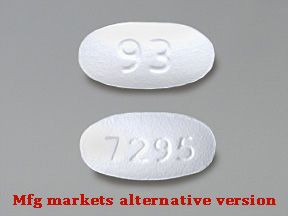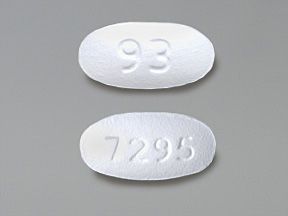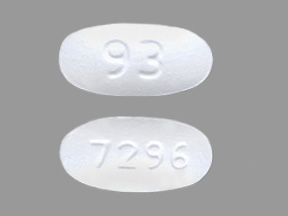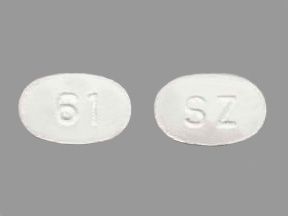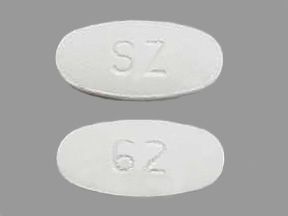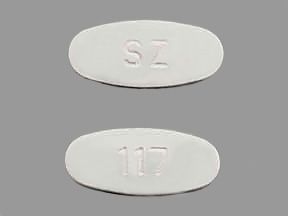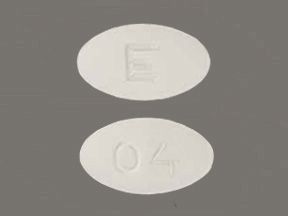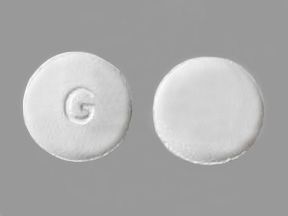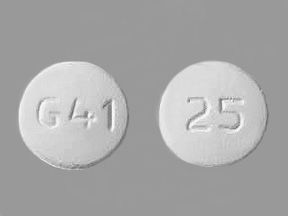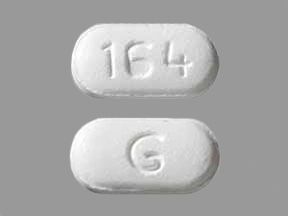- Carvedilol oral tablet is available as a generic drug and a brand-name drug. Brand-name: Coreg.
- Carvedilol also comes as an oral extended-release capsule.
- Carvedilol is a beta-blocker. It’s used to treat high blood pressure, heart failure, and heart function problems after a heart attack.
- Sudden drug stoppage warning: Don’t stop taking this drug without talking to your doctor first. Stopping carvedilol suddenly can cause changes in your heart rhythm, worsened chest pain, or a heart attack. If you will be stopping this drug, your doctor will slowly lower your dosage over one to two weeks to help prevent these effects. If your chest pain or heart problems get worse after stopping this drug, your doctor may have you start taking it again for a short time.
- Low heart rate warning: Carvedilol can decrease your heart rate. If your heart rate drops below 55 beats per minute, your doctor may decrease your dosage of this drug.
- Low blood pressure warning: Carvedilol can cause dangerously low blood pressure, which may cause you to lose consciousness. This risk is highest after your first doses and during dosing increases. To decrease the risk of this happening, take carvedilol with food. Your doctor may start you on a low dosage and slowly increase it.
- Diabetes warning: Carvedilol can cause low blood sugar levels (hypoglycemia) and delay how long it takes your blood sugar levels to return to normal. It may also mask the signs of low blood sugar levels. Use this drug with caution if you have diabetes, especially if you take insulin or other diabetes drugs that can cause low blood sugar.
Carvedilol oral tablet is a prescription drug that’s available as the brand-name drug Coreg. It’s also available as a generic drug. Generic drugs usually cost less. In some cases, a generic drug may not be available in every strength or form as a brand-name version.
Carvedilol also comes as an extended-release oral capsule.
Why it’s used
Carvedilol oral tablet is used to treat high blood pressure. It can also improve how well your heart works if you’ve had a heart attack or if you have heart failure.
This drug is approved to treat:
- heart failure
- left ventricular dysfunction (a heart function problem) after a heart attack
- high blood pressure
How it works
Carvedilol belongs to a class of drugs called beta-blockers. A class of drugs is a group of medications that work in a similar way. These drugs are often used to treat similar conditions.
It isn’t fully understood how carvedilol works to treat high blood pressure or improve heart function. However, it is known that carvedilol improves the workload of your heart, exercise-induced high heart rate, and high heart rate upon standing. It also widens your blood vessels, which helps to decrease your blood pressure.
Carvedilol oral tablet can cause several types of side effects, including drowsiness. Don’t drive, use machinery, or perform activities that require alertness until you know how this drug affects you.
More common side effects
The more common side effects that can occur with carvedilol oral tablet include:
- dizziness
- unusual tiredness
- low blood pressure
- diarrhea
- high blood sugar
- lack of energy or weakness
- slower heart rate
- weight gain
- changes in sex drive or performance
- dry eyes
- dry, itchy skin
- headache
- nausea
If these effects are mild, they may go away within a few days or a couple of weeks. If they’re more severe or don’t go away, talk to your doctor or pharmacist.
Serious side effects
Call your doctor right away if you have serious side effects. Call 911 if your symptoms feel life-threatening or if you think you’re having a medical emergency. Serious side effects and their symptoms can include the following:
- Allergic reactions. Symptoms can include:
- skin rash
- hives
- swelling of your face, lips, or tongue
- Changes in your heart rate. Symptoms can include:
- irregular or slow heart rate
- feeling dizzy or fainting
- Heart problems. Symptoms can include:
- breathing problems or shortness of breath
- weight gain
- swollen legs, ankles, or arms
- chest pain
- Liver problems. Symptoms can include:
- dark-colored urine
- vomiting
- yellowing of your skin or the whites of your eyes
- Eye problems. Symptoms can include:
- change in eyesight
- changes in how contact lenses feel in your eyes
- Urinary problems. Symptoms can include:
- being unable to pass urine
- change in how much urine you pass
Disclaimer: Our goal is to provide you with the most relevant and current information. However, because drugs affect each person differently, we cannot guarantee that this information includes all possible side effects. This information is not a substitute for medical advice. Always discuss possible side effects with a healthcare provider who knows your medical history.
Carvedilol oral tablet can interact with other medications, herbs, or vitamins you might be taking. That’s why your doctor should manage all of your medications carefully. If you’re curious about how this drug might interact with something else you’re taking, talk to your doctor or pharmacist.
Note: You can reduce your chances of drug interactions by having all of your prescriptions filled at the same pharmacy. That way, a pharmacist can check for possible drug interactions.
Examples of drugs that can cause interactions with carvedilol are listed below.
Heart rhythm drugs
Taking certain heart rhythm drugs with carvedilol can cause more severe side effects. The combination may lower your heart rate or blood pressure, or worsen a heart blockage. Your doctor may watch you closely for side effects or adjust the dosage of carvedilol or your heart rhythm drug.
Examples of these drugs include:
- amiodarone
- bretylium
- quinidine
- digoxin
- disopyramide
- encainide
- flecainide
- propafenone
- procainamide
- sotalol
Blood pressure drug
Using clonidine with carvedilol can lower your blood pressure and heart rate even further. If you’re switching to carvedilol from clonidine, your doctor will slowly take you off clonidine. You’ll start carvedilol several days after stopping clonidine. If you need both drugs, your doctor will watch you for low blood pressure and low heart rate. If you’re on both drugs and both need to be stopped, your doctor will stop your treatment with carvedilol first and clonidine a few days later.
Other beta-blockers
Carvedilol shouldn’t be used with another beta-blocker. This combination may lower your heart rate and blood pressure too much. Examples of other beta-blockers include:
- acebutolol
- atenolol
- bisoprolol
- metoprolol
- propranolol
Calcium channel blockers
If you take a calcium channel blocker with carvedilol, your doctor will monitor your blood pressure and heart rhythm. Examples of these drugs include:
- diltiazem
- verapamil
Diabetes drugs
Using carvedilol with certain diabetes drugs can make these diabetes drugs lower your blood sugar levels further. If you take these diabetes drugs with carvedilol, you’ll need to check your blood sugar regularly. Examples of these drugs include:
- insulin
- oral diabetes drugs
Transplant rejection drug
Taking carvedilol with cyclosporine may increase the levels of cyclosporine in your body. Your doctor may lower your dosage of cyclosporine and monitor you closely.
Disclaimer: Our goal is to provide you with the most relevant and current information. However, because drugs interact differently in each person, we cannot guarantee that this information includes all possible interactions. This information is not a substitute for medical advice. Always speak with your healthcare provider about possible interactions with all prescription drugs, vitamins, herbs and supplements, and over-the-counter drugs that you are taking.
This drug comes with several warnings.
Allergy warning
Don’t take this drug again if you’ve ever had an allergic reaction to it. Taking it again could be fatal. Symptoms of an allergic reaction include:
- rash or hives
- itching
- blistering or peeling skin
- fever
- problems breathing or chest tightness
- swelling of your mouth, face, lips, tongue or throat
If you have a history of severe, life-threatening allergic reactions to different allergens, you’re at a higher risk of having the same reaction to beta-blockers. Tell your doctor about all of your allergies before starting this medication.
Don’t take this drug again if you’ve ever had an allergic reaction to it. Taking it again could be fatal (cause death).
Alcohol interaction warning
Talk to your doctor before using alcohol while taking this medication. If you drink alcohol while taking carvedilol, your blood pressure may decrease to levels that are lower than normal. This can be dangerous.
Warnings for people with certain health conditions
For people with asthma: If you have asthma or a related condition, you shouldn’t use this drug. A single dose of carvedilol can be fatal in people with asthma.
For people with heart problems:
- Second- or third-degree heart block: Carvedilol can make your heart block worse.
- Heart rhythm problems: If you already have a heart rhythm problem, such as sick sinus syndrome, taking carvedilol can make it worse.
- Very low heart rate: This drug can slow down your heart rate even more, possibly to dangerously low levels. Don’t take carvedilol if you have a very low heart rate unless you have a permanent pacemaker.
- Cardiogenic shock or decompensated heart failure: People with shock or decompensated failure that requires the use of certain medications (inotropic therapy that’s administered into your veins) shouldn’t use this drug. It can make the condition worse.
- Chronic heart failure: Carvedilol can worsen heart failure or fluid retention, especially during dosage increases. Carvedilol can further decrease the force of contraction of your heart and slow down your heart rate. This may make your heart failure worse if your dosage is increased too quickly. Your doctor may need to lower your dosage or temporarily stop carvedilol if this happens.
For people with severe liver problems: You shouldn’t take this medication. It’s broken down by your liver. When your liver isn’t working properly, taking this medication can result in higher amounts of it in your body. This may lead to serious side effects, such as dangerously low blood pressure or slow heart rate.
For people with low blood pressure: Carvedilol can cause dangerously low blood pressure that may cause you to lose consciousness.
For people with chronic bronchitis or emphysema: You shouldn’t take carvedilol or other beta-blockers. This drug can affect not only your heart but also your lungs. Its effects in your lungs can lead to tightened airways, making it difficult for you to breathe.
For people with diabetes: Carvedilol can cause low blood sugar (hypoglycemia) and delay how long it takes for your blood sugar to return to normal. It may also mask the signs of low blood sugar. Use this drug with caution if you have diabetes, especially if you take insulin or other diabetes drugs that can cause low blood sugar. If you have diabetes and are taking this medication for heart failure, it may increase your blood sugar levels. You’ll need to monitor your blood sugar and your doctor will adjust your medications accordingly.
For people with peripheral vascular disease (PVD): Use caution if you have PVD and take carvedilol. This drug can make your symptoms worse.
For people with kidney problems: Carvedilol can worsen your kidney function if you have heart failure. You’re at a higher risk if you have low blood pressure or heart or vascular disease. Your doctor will monitor your kidney function and may lower your dosage or stop your treatment with carvedilol.
For people with hyperactive thyroid: Carvedilol can mask the symptoms of a hyperactive thyroid (hyperthyroidism). If you stop taking carvedilol suddenly and have hyperthyroidism, your symptoms can get worse or you may develop a serious condition called thyroid storm
For people with pheochromocytoma: Take this medication with caution if you have this condition. If you have pheochromocytoma, talk with your doctor. You may need to take another medication before starting carvedilol.
For people with Prinzmetal’s variant angina (chest pain that occurs between midnight and the early morning): Carvedilol may increase your risk of chest pain if you have Prinzmetal’s variant angina. Talk with your doctor before taking carvedilol if you have this condition.
For people with intraoperative floppy iris syndrome: Before receiving any type of cataract surgery, tell your doctor that you’re taking this drug. You’re at an increased risk of getting a condition called small pupil syndrome during surgery.
Warnings for other groups
For pregnant women: Carvedilol is a category C pregnancy drug. That means two things:
- Research in animals has shown adverse effects to the fetus when the mother takes the drug.
- There haven’t been enough studies done in humans to be certain how the drug might affect the fetus.
Tell your doctor if you’re pregnant or plan to become pregnant. Carvedilol should be used during pregnancy only if the potential benefit justifies the potential risk to the fetus.
For women who are breastfeeding: It isn’t known if carvedilol passes into breast milk. If it does, it may cause serious effects in a breastfeeding child. You and your doctor may need to decide if you’ll take carvedilol or breastfeed.
For seniors: Seniors may be more likely to experience dizziness while taking this drug.
For children: It has not been established that carvedilol is safe and effective for use in people under the age of 18 years.
This dosage information is for carvedilol oral tablets. All possible dosages and forms may not be included here. Your dose, form, and how often you take it will depend on:
- your age
- the condition being treated
- the severity your condition
- other medical conditions you have
- how you react to the first dose
Forms and strengths
Generic: Carvedilol
- Form: oral tablet
- Strengths: 3.125 mg, 6.25 mg, 12.5 mg, and 25 mg
Brand: Coreg
- Form: oral tablet
- Strengths: 3.125 mg, 6.25 mg, 12.5 mg, and 25 mg
Dosage for heart function problems following heart attack
Adult dosage (ages 18 years and older)
- The recommended starting dosage is 6.25 mg taken twice per day.
- It can be increased after 3 to 10 days to 12.5 mg taken twice per day.
- It can be increased up to 25 mg taken twice per day.
- You’ll be kept on a lower dosage if you can’t tolerate higher dosages.
Child dosage (ages 0 to 17 years)
A safe and effective dosage hasn’t been established for this age group.
Special considerations
- For people with kidney problems: If you have kidney problems, your doctor will closely monitor you during treatment. They may lower your dose or stop treatment if your kidney function gets worse.
- For people with low blood pressure or heart rate or who are retaining fluid:
- You may be started at a lower dosage of 3.125 mg taken twice per day. Or, your dosage may be increased at a slower rate.
- You’ll be kept on a lower dosage if you can’t tolerate higher dosages.
Warnings
Your doctor will monitor you closely during dosage increases.
Dosage for high blood pressure
Adult dosage (ages 18 years and older)
- The recommended starting dose is 6.25 mg taken twice per day.
- It can be increased after 7 to 14 days based on your blood pressure level one hour after your dose.
- Your dosage can be first increased to 12.5 mg taken twice per day. It can be increased again to 25 mg taken twice per day.
- The total dosage shouldn’t go over 50 mg per day.
Child dosage (ages 0 to 17 years)
A safe and effective dosage hasn’t been established for this age group.
Special considerations
- For people with kidney problems: If you have kidney problems, your doctor will closely monitor you during treatment. They may lower your dose or stop treatment if your kidney function gets worse.
Warnings
Your doctor will monitor you closely during dosage increases.
Dosage for heart failure
Adult dosage (ages 18 years and older)
- The recommended starting dosage is 3.125 mg taken twice per day for two weeks.
- It can be increased to 6.25 mg, 12.5 mg, and 25 mg taken twice per day over two-week intervals.
- When you first start the medication and during dosage increases, you might feel dizzy and lightheaded within the first hour of taking your dose. During this time, you shouldn’t drive or do any similar activities that require alertness.
Child dosage (ages 0 to 17 years)
A safe and effective dosage hasn’t been established for this age group.
Special considerations
- For people with kidney problems: If you have kidney problems, your doctor will closely monitor you during treatment. They may lower your dose or stop treatment if your kidney function gets worse.
Warnings
Your doctor will monitor you closely during dosage increases.
Disclaimer: Our goal is to provide you with the most relevant and current information. However, because drugs affect each person differently, we cannot guarantee that this list includes all possible dosages. This information is not a substitute for medical advice. Always speak with your doctor or pharmacist about dosages that are right for you.
Carvedilol oral tablet is used for long-term treatment. It comes with serious risks if you don’t take it as prescribed.
If you don’t take it at all: Your condition may not improve and it may get worse.
If you skip or miss doses: Your blood pressure or heart condition may not be controlled if you skip or miss doses.
If you take too much: An overdose of this drug could cause your heart to stop. Symptoms of overdose of carvedilol include:
- low blood pressure and heart rate
- vomiting
- loss of consciousness
- seizures
- trouble breathing
If you think you’ve taken too much of this drug, call your doctor or local poison control center. If your symptoms are severe, call 911 or go to the nearest emergency room right away.
What to do if you miss a dose: If you miss a dose, take it as soon as you can. If it’s just a few hours before the time for your next dose, then only take one dose at that time. Never try to catch up by taking two doses at once. This could result in toxic side effects.
How to tell if the drug is working: You may be able to tell this drug is working if your blood pressure decreases or your other symptoms improve.
Keep these considerations in mind if your doctor prescribes carvedilol oral tablet for you.
General
- Take carvedilol with food. Taking it with food reduces your risk of side effects.
- You can crush carvedilol tablets.
- The generic version of this drug is usually stocked at most pharmacies. However, the brand-name version might not be stocked, so call ahead if your doctor prescribes that version.
Storage
- Store in temperatures below 86°F (30°C).
- Don’t store this medication in moist or damp areas, such as bathrooms.
Refills
A prescription for this medication is refillable. You should not need a new prescription for this medication to be refilled. Your doctor will write the number of refills authorized on your prescription.
Travel
When traveling with your medication:
- Always carry your medication with you. When flying, never put it into a checked bag. Keep it in your carry-on bag.
- Don’t worry about airport X-ray machines. They can’t hurt your medication.
- You may need to show airport staff the pharmacy label for your medication. Always carry the original prescription-labeled box with you.
- Don’t put this medication in your car’s glove compartment or leave it in the car. Be sure to avoid doing this when the weather is very hot or very cold.
Clinical monitoring
During treatment with carvedilol, your doctor may check your:
- blood pressure
- heart rate
- weight
- blood sugar (if you have diabetes)
- liver function
- potassium levels
- cholesterol levels
There are other drugs available to treat your condition. Some may be more suitable for you than others. Talk to your doctor about possible alternatives.
Disclaimer: Medical News Today has made every effort to make certain that all information is factually correct, comprehensive, and up-to-date. However, this article should not be used as a substitute for the knowledge and expertise of a licensed healthcare professional. You should always consult your doctor or other healthcare professional before taking any medication. The drug information contained herein is subject to change and is not intended to cover all possible uses, directions, precautions, warnings, drug interactions, allergic reactions, or adverse effects. The absence of warnings or other information for a given drug does not indicate that the drug or drug combination is safe, effective, or appropriate for all patients or all specific uses.

